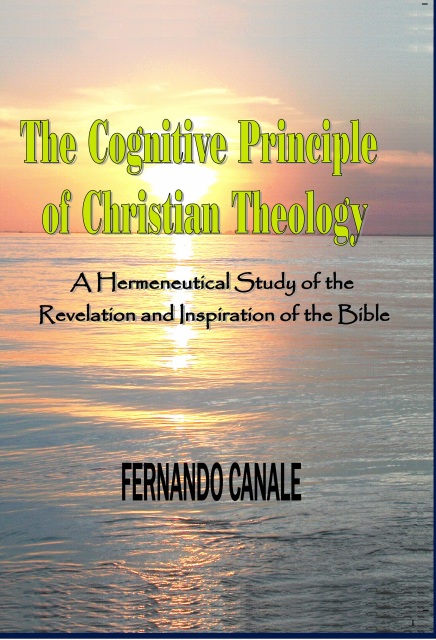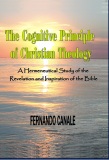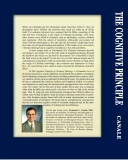- Store
- >
- English store
- >
- Books
- >
- The Cognitive Principle of Christian Theology: A Hermeneutical Study of the Revelation and Inspiration of the Bible by Fernando Canale
The Cognitive Principle of Christian Theology: A Hermeneutical Study of the Revelation and Inspiration of the Bible by Fernando Canale
SKU:
$9.99
$9.99
Unavailable
per item
Digital product, 1 PDF book, 482 pages.
Where do Christians get the information about what they believe? How do theologians know whether the doctrines they teach are made up of divine truth? For centuries believers have assumed that the Bible, consisting of the Old and New Testaments, is the origin of Christian knowledge. Over time, other sources were added to Scripture, such as philosophy, science, tradition and experience. ·with the advent of modernity, philosophy and science led many Christian theologians to the idea that the documents comprising Scrip ture came out of human thinking and tradition. If the modem view was correct, Christian theology had no cognitive foundation; it was left groundless. Is there unique truth in Christianity? Do Christian doctrines describe real things to our minds? Or are they the result of imagination flowing through the traditions into which we are born? Is the modem view of the Bible's origin the final word on the matter? Or are the views of the classical church and of contemporary evangelicals viable in postmodem times? Should we think about the origin of Christian knowledge-the revelation and inspiration of Scrip ture-by constructing a new model to lead us beyond the limitations of present ideas? In The Cognitive Principle of Christian Theology: A Postmodern View of Revelation-Inspiration, Canale addresses not primarily the academic community, but the thinking community of the church, including administrators, pastors, theol ogy students, and lay persons interested in theological issues. He guides them step by step to understand the classical, modem, and evangelical models of revelation and inspiration by analyzing the hermeneutical presuppositions from which they come. The reader will see that each of these models fail in some way to integrate either what the Bible says about itself, or the facts of what we fmd on the written page. Then by using the same hermeneutical presuppositions biblical authors as sumed when writing Scripture Canale develops an alternate model able to harmo nize what Scripture teaches about itself with its actual characteristics as written work (phenomena of Scripture). The book ends by considering the consequences that the new historical cognitive model of revelation inspiration has for the interpretation of Scripture and its truthfulness
Table of Contents
Preface 1
SECTION 1: GROUNDWORK 5
1. What Are You Talking About?
2. General Revelation
3. Introduction to the Study of Special Revelation
4. The Biblical Claim
5. What is Knowledge?
6. The Possibility of Revelation: Nature and Supernature
SECTION 2: MODELS OF INTERPRETATION
7. Models as Tools for Understanding
8. The Classical Model
9. The Turning Point Between the Classical and
Modern Models
10. The Modern Model
11. The Evangelical Model
SECTION 3: THE HISTORICAL-COGNITIVE MODEL
12. The Postmodern Shift: The Possibility of a
New Model
13. Biblical Hermeneutical Presuppositions
14. Methodological Remarks
15. God’s Role in Revelation
16. Revelation Incarnated
17. Patterns of Revelation
18. Inspiration
19. Hermeneutical Effects
20. The Truthfulness of Scripture
Where do Christians get the information about what they believe? How do theologians know whether the doctrines they teach are made up of divine truth? For centuries believers have assumed that the Bible, consisting of the Old and New Testaments, is the origin of Christian knowledge. Over time, other sources were added to Scripture, such as philosophy, science, tradition and experience. ·with the advent of modernity, philosophy and science led many Christian theologians to the idea that the documents comprising Scrip ture came out of human thinking and tradition. If the modem view was correct, Christian theology had no cognitive foundation; it was left groundless. Is there unique truth in Christianity? Do Christian doctrines describe real things to our minds? Or are they the result of imagination flowing through the traditions into which we are born? Is the modem view of the Bible's origin the final word on the matter? Or are the views of the classical church and of contemporary evangelicals viable in postmodem times? Should we think about the origin of Christian knowledge-the revelation and inspiration of Scrip ture-by constructing a new model to lead us beyond the limitations of present ideas? In The Cognitive Principle of Christian Theology: A Postmodern View of Revelation-Inspiration, Canale addresses not primarily the academic community, but the thinking community of the church, including administrators, pastors, theol ogy students, and lay persons interested in theological issues. He guides them step by step to understand the classical, modem, and evangelical models of revelation and inspiration by analyzing the hermeneutical presuppositions from which they come. The reader will see that each of these models fail in some way to integrate either what the Bible says about itself, or the facts of what we fmd on the written page. Then by using the same hermeneutical presuppositions biblical authors as sumed when writing Scripture Canale develops an alternate model able to harmo nize what Scripture teaches about itself with its actual characteristics as written work (phenomena of Scripture). The book ends by considering the consequences that the new historical cognitive model of revelation inspiration has for the interpretation of Scripture and its truthfulness
Table of Contents
Preface 1
SECTION 1: GROUNDWORK 5
1. What Are You Talking About?
2. General Revelation
3. Introduction to the Study of Special Revelation
4. The Biblical Claim
5. What is Knowledge?
6. The Possibility of Revelation: Nature and Supernature
SECTION 2: MODELS OF INTERPRETATION
7. Models as Tools for Understanding
8. The Classical Model
9. The Turning Point Between the Classical and
Modern Models
10. The Modern Model
11. The Evangelical Model
SECTION 3: THE HISTORICAL-COGNITIVE MODEL
12. The Postmodern Shift: The Possibility of a
New Model
13. Biblical Hermeneutical Presuppositions
14. Methodological Remarks
15. God’s Role in Revelation
16. Revelation Incarnated
17. Patterns of Revelation
18. Inspiration
19. Hermeneutical Effects
20. The Truthfulness of Scripture


